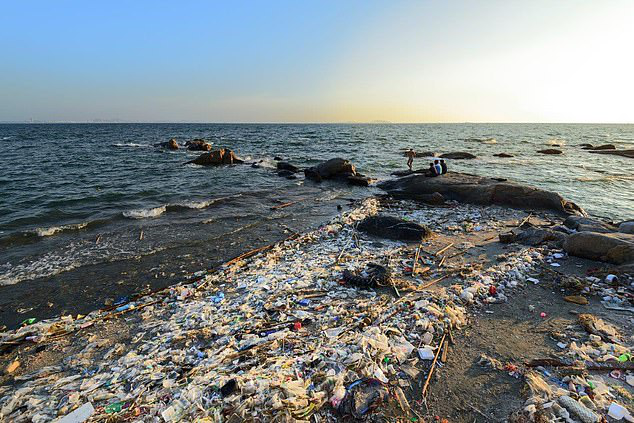
Britain and other countries are treating the oceans “like a sewer” as the amount of plastic in the world’s seas is expected to treble by 2025, MPs warn. The Government was accused of an “out of sight, out of mind” attitude to the seas and was urged to instead take the lead on plastic, pollution and ocean protection.
Plastic litter, fertilisers and heavy metals, is pouring into the oceans. It is said that Britain can do a lot more to stop plastic ending up in the ocean. Around 80 per cent of waste going in the sea worldwide comes from the land.
The UK needs to stop exporting waste to countries with poor recycling infrastructure—with the risk it ends up in the sea. It must also improve recycling in the UK to stop rubbish ending up in the sea from rivers in this country.
Britain also needs to reduce chemical pollution from land based sources such as fertiliser from farms. A “Paris Agreement” for the seas—a worldwide action to clean up the Oceans—similar to the world to reduce global warming—is important.
The Government must show leadership on plastic and make progress to ban those plastics that are difficult or impossible to recycle. Oceans are also threatened by climate change, with temperature rises of 2℃ above industrial levels set to destroy almost all the world’s coral reefs and harm fish and other wildlife. Overfishing and other exploitation of marine resources such as deep sea mining also threaten the seas. Chair Mary Creagh MP said, “We have to stop treating our seas as a sewer. Plastics, chemicals, and sewage are choking our oceans, polluting our water and harming every ocean species.”
本时文内容由奇速英语国际教育研究院原创编写,未经书面授权,禁止复制和任何商业用途,版权所有,侵权必究!(作者投稿及时文阅读定制请联系微信:400-1000-028)
1.What was the British government’s attitude towards the ocean pollution problem?
A It didn’t care about the problem.
B It spent much money on the problem.
C It strengthened the punishment of pollution.
D It took an active part in the ocean protection.
解析:选A。细节理解题。根据文章第一段第二句的The Government was accused of an “out of sight, out of mind” attitude to the seas可知英国政府采取了“眼不见心不烦”的态度,即英国政府对这个问题没有重视。故选A。
2.Where does most of the waste in the sea come from according to the passage?
A The factories.
B The mountains.
C The land.
D The rivers.
解析:选C。细节理解题。根据文章第二段最后一句Around 80 per cent of waste went in the sea worldwide comes from the land.可知大多数海洋垃圾来自陆地。故选C。
3.Why shouldn’t the UK export waste to countries with poor recycling infrastructure?
A Those countries might not deal with the waste well.
B The UK was able to make money from the rubbish.
C The rivers in other countries might become clean.
D The UK already had the best recycling infrastructure.
解析:选A。推理判断题。根据第三段第一句The UK needs to stop exporting waste to countries with poor recycling infrastructure—with the risk it ends up in the sea.可知由于那些国家的循环处理基础设施薄弱,这些垃圾可能再次进入海洋。由此可推知建议英国不要出口这些垃圾是担心那些国家不能很好地进行处理,故选A。
4.Which of the following is not a threat to the ocean?
A Chemical pollution from land.
B Protecting the world’s coral reefs, fish and other wildlife.
C Global climate change.
D Overfishing and over exploitating marine resources.
解析:选B。细节理解题。根据文章最后两段的内容可知应选B。